Occupational disease, as the name suggests, is a condition developed over time due to work-related activities. Working conditions play a pivotal role in the development of symptoms of occupational diseases. However, it is crucial to understand the difference between the categories of occupational diseases as some fall under the purview of disabilities under the Americans with Disabilities Act. Doing this is essential because you can claim compensation for some occupational diseases under the worker’s compensation. Understand what is occupational disease in workers’ compensation and learn about occupational disease compensation at Royce Injury Lawyers. Essential information for affected workers that you need to know to put forth your claim.
What Is An Occupational Disease?
According to the definition by the Workers’ Compensation Board, occupational diseases are those associated with a specific profession or industry. Form C-3, also known as the Employee Claim form, is used to file worker’s compensation claims for occupational diseases. Form 3 contains essential information and particulars of the claim:
- Name, address, and details of the employer
- Wages for the claim period
- Name and addresses of any former employer(s)
- Name and address of the medical practitioner(s)/doctor(s) and their diagnosis
- Detailed medical report on your condition
However, to understand compensation under the local laws, it is essential to consult a good workers’ comp lawyer.
Typical Occupational Diseases

The typical occupational diseases at work are associated with lung, skin, and muscle conditions. Construction workers are often exposed to dust and construction-related chemicals that may result in breathing issues and lung conditions. Similarly, in some professions like healthcare, mining, processing factories, and drug manufacturing, prolonged exposure to chemicals can irritate, react, burn, or cause allergies to the skin. Lastly, some occupational diseases are associated with muscle strain, such as carpal tunnel syndrome (CTS). CTS is observed in workers who spend long hours on computer-related jobs. These occupational diseases are covered under occupational disease laws, which may vary from state to state.
Protocol for Occupational Illness Reporting
The protocol of occupational illness reporting can be divided into the following essential steps:
- Contacting your employer: The first essential step is to contact your employer to inform him about the illness and report the nature of the occupational disease at the workplace.
- Disclosing any prior occupational disease from last employment: In continuation of the previous step, it is essential to inform and disclose to your employer any prior occupational disease from the previous job.
- Receiving medical diagnosis: The next step is to get a detailed and thorough medical examination by the relevant specialist. Getting a proper diagnosis from the doctor is critical as it is used to evaluate the merit of your worker’s comp claim.
- Filing the claim: Employee Claim (Form C-3) is used to file the workers compensation occupational disease claim. The form contains information about the current employer, job information, disease or injury info, details about medical treatment, and info about return to work, etc.
Process for Informing Employers About Workplace Illnesses
Reporting to the HR/Employer: Structured reporting should include informing HR or employer about the nature, impact, diagnosis, and medical treatment expense of the occupational disease. Reporting should also include present as well as future implications of the occupational disease on earning capacity and the minimum recovery period. Moreover, the reporting must also address if you need to be accommodated at the workplace with any special adjustments after you join the workplace post-recovery.
Risk Evaluation by the Employer: The employer will assess the risk and exposure of an occupational disease and make reasonable efforts to mitigate the conditions at the workplace.
Worker’s compensation for occupational disease: The employee can file a claim for compensation under the occupational disease category after following a medical examination and the steps outlined above.
Kansas City, Missouri Workers’ Comp Benefits for Occupational Diseases
Missouri Workers’ Compensation Act applies, amongst other injuries, to occupational diseases contracted in MO. The Act obliges the employee to report occupational disease to the employer within 30 days of the occurrence of disease via notice. The limitation on occupational disease claims is two years from the date of identification of occupational disease and exposure to the conditions that led to such occupational disease.
Workers’ Comp benefits for occupational diseases with Missouri and Kansas City include:
- Medical expenses: Medical benefits are given in the form of expense coverage, treatment expenses, medication, hospital bills, aiding devices, etc.
- Wages: Lost wages are covered as compensation benefits during the recovery period. However, the amount should be below the prescribed amount by law. Lost wages are calculated on the basis of gross wages through which average weekly wages are calculated.
- Additional compensation: In case of permanent disability, additional compensation such as disability and survival benefits are also awarded.
The Role of Legal Assistance in Workers’ Compensation Claims
Legal assistance in worker’s compensation claims is critical to ensure you get the compensation you deserve. Insurance companies often employ tactics to deny or reduce the fair compensation deserved by the employees/workers by trying to find excuses to put consequential blame on them. Having an occupational disease lawyer by your side ensures you are not played with by the insurance companies and reach a fair settlement. They are also experts in recommending alternative legal remedies if the employer’s insurance coverage is not enough to cover the compensation for occupational disease adequately. Not only do they negotiate a settlement deal with the insurance companies but also help you file personal injury claims if the negotiations fail.
Occupational diseases are identifiable diseases that develop with or without the fault of an employee and occur during employment. Occupational diseases are covered under the Workers’ Compensation Act in Missouri and Kansas City, and employers are required to have insurance for workers so that they can be paid in case an event of workers’ compensation claim arises. Our expert occupational disease comp Royce Injury Lawyers are experienced in handling compensation cases aptly. Book a free consultation today to understand your rights!
- Key Facts About Missouri’s No Pay No Play Law - 28th May 2025
- Understanding Taxes on Personal Injury Settlements - 23rd May 2025
- Navigating Your Rights After a Car Crash While Pregnant - 21st May 2025


